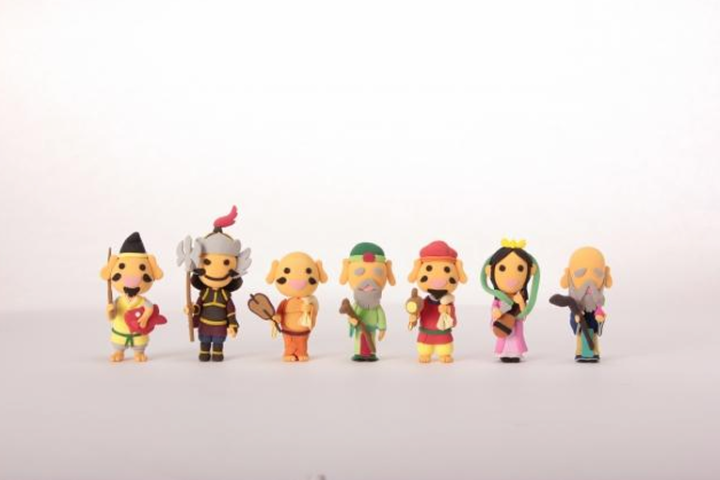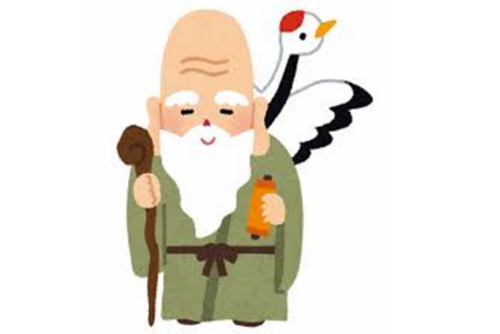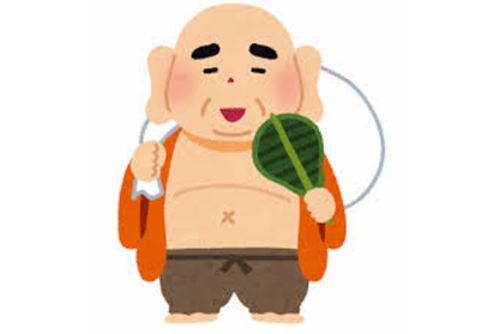


If you are even remotely interested in Japanese folklore, you must have heard about the seven lucky gods of Japanese mythology. These seven gods, also called Shichifukujin, are considered the gods of happiness, prosperity and fortune. In this blog post we will dive deep on this topic and understand about them in detail. So to all the curious folks reading this article, let’s get started!

Origin of all the seven gods is not the same. Three of them have originated from hinduism, three from chinese buddhism and taoism and one from shintoism, a religion native to japan. This makes up the seven gods namely, Ebisu, Daikokuten, Bishamonten, Benzaiten, Fukurokuju, Jūrōjin, and Hotei.

The only god who originated from Japan, Ebisu is considered the god of fishermen and prosperity. It is believed that Ebisu was the son of the gods Izanagi and izanami. He was born without strong bone structure and thus he was cast into the sea on a boat when he was three years old. After that he was rescued by fishermen and merchants. It is the most popular story about the origin and specifications of the god Ebisu.
He is considered to bring good luck and prosperity to fishermen, merchants and business owners. Even after struggling so much as a young child he is usually depicted as a happy deity. In most of his expressions he is shown holding a fish in his left hand and fishing rod in the right hand.

Daikokuten is the god of wealth and abundance. Daikokuten is usually associated with the hindu god Mahakal. Often depicted sitting on rice bags and carrying a wish-granting magic mallet and a bag full of treasures, Daikokuten is believed to be a guardian angel for farmers and agriculture. In modern culture, many people pray to god Daikokuten to achieve success in business and financial endeavours.

Originating from the hindu and buddhist deity Vaishravana, Bishamonten is the god of warriors. Considered a powerful god of war and battles, Bishamonten is a symbol of justice and righteousness. As you can see in the picture above, Bishamonten is depicted carrying a spear in his right hand ready to fight the wrong, and in the left hand carrying a pagoda that represents a treasure house that is being protected by him. People pray to god Bishamonten for protection, victory and prosperity.

The only female deity among the seven lucky gods, Goddess Benzaiten originates from the hindu deity Saraswati. Benzaiten is considered the goddess of arts, music and knowledge. Apart from these creative fields, Benzaiten is often associated with eloquence, peace,beauty and wealth. As you can see in the image above, Goddess Benzaiten is often depicted holding a biwa( Japanese short necked lute) in her hand. She is usually connected by sea and water and often shown near water bodies. Even most of goddess Benzaiten’s shrines are also near water bodies. This represents her all encompassing nature. In the modern times, many musicians, artists and geishas pray to her for the success in their respective creative fields.

Originating from Chinese Taoism, God Fukurokuju is a god of wisdom, longevity and wealth. The God is believed to have a tall stature and an exceptionally long forehead representing great wisdom. As you can see in the image above, he is shown with a crane by side. This bird represents a long life filled with happiness in Japanese and Chinese cultures. It is believed that earlier he was just a mortal but after attaining great wisdom and knowledge he became a god. He teaches everyone the value of knowledge and learning so that we can understand and appreciate the importance of life and the natural order of the world.

Jurojin is the god of longevity, immortality and wisdom. As shown in the picture, he is depicted as an old man with a long white beard. He is shown accompanied with a deer that represents long life. You can also see God Jurojin holding a long stick with a scroll attached on top. This scroll represents wisdom and knowledge.
Similar to the God Fukurokuju, God Jurojin is also believed to have been once a Chinese Taoist sage. He teaches everyone the value of simple everyday living and the pleasures in those experiences. People pray to Jurojin for a healthy, happy and long life.

Also known as the laughing buddha, God Hotei is a symbol of happiness and contentment. He is often depicted as a jolly and plump monk with a protruding belly. He is also shown as carrying a large sack of treasures symbolizing wealth and fortune. People pray to this beloved god for joy and contentment.
Thankyou for reading this article! Hope you liked it.